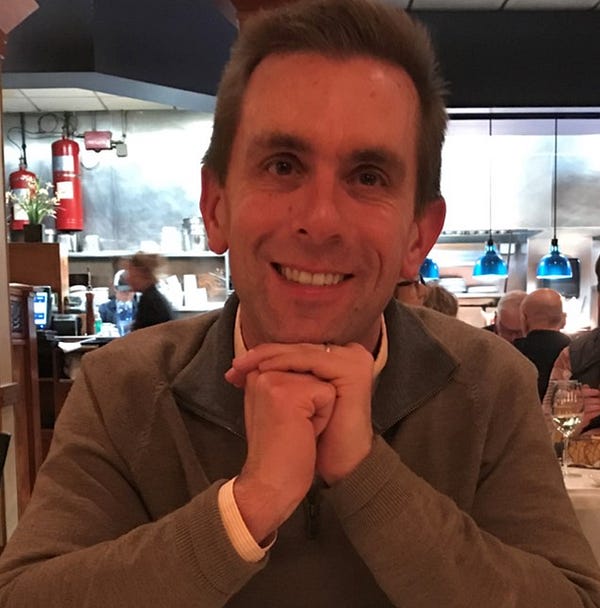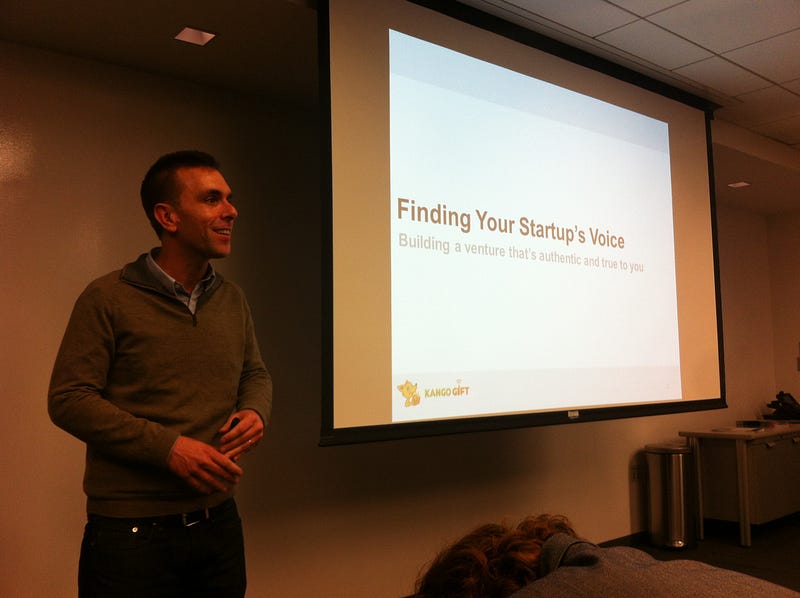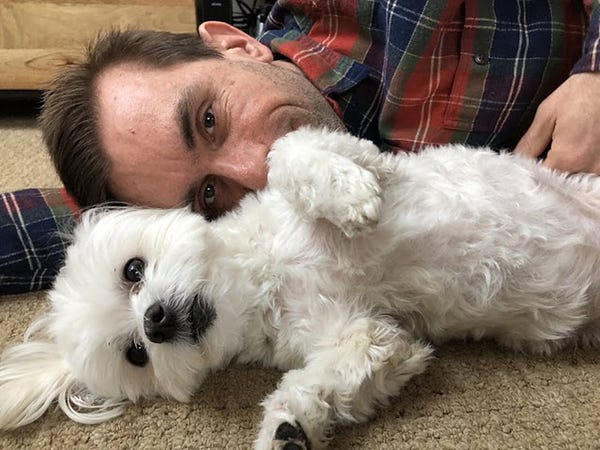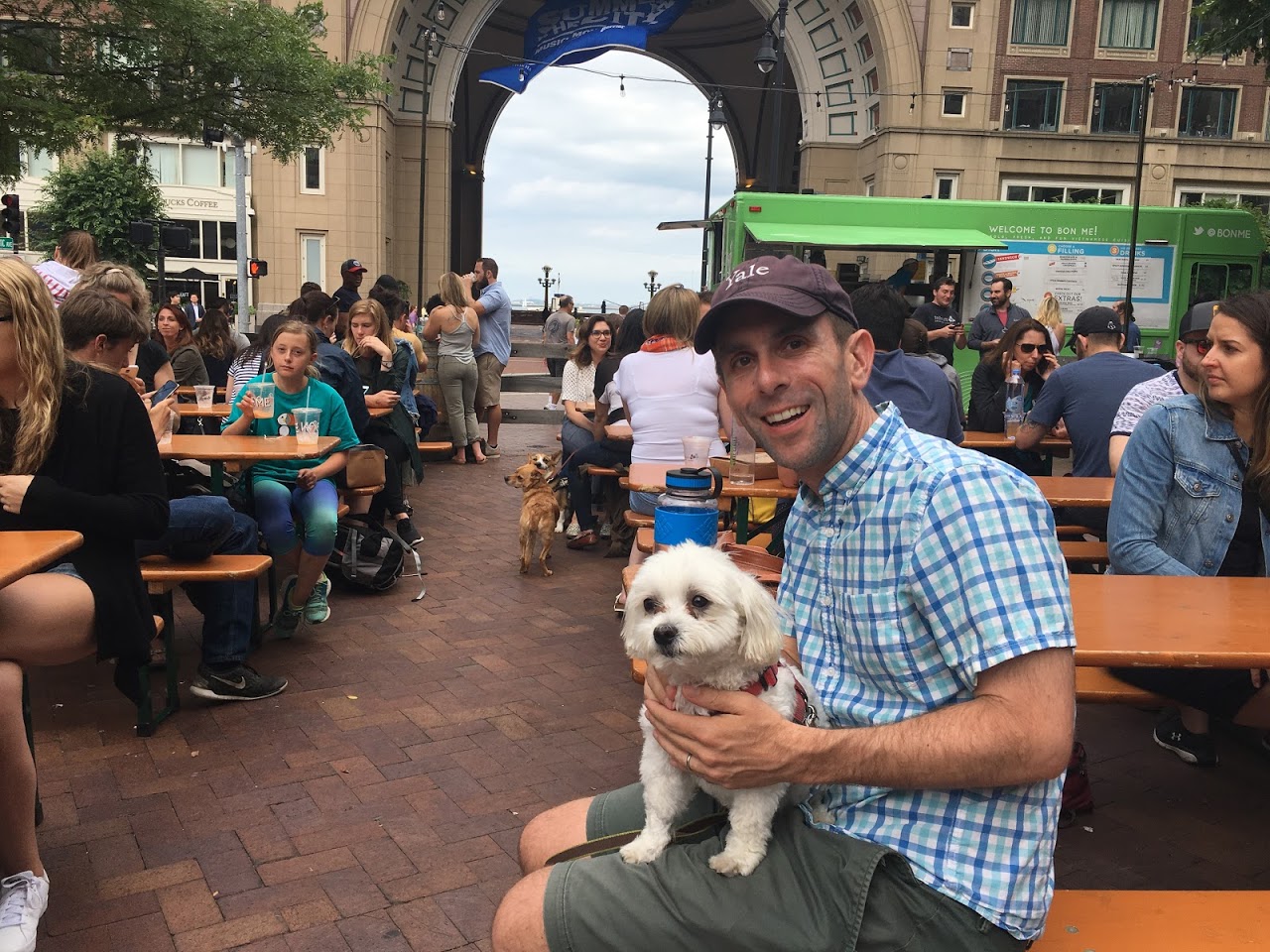I had a dramatic personal health issue last year. The doctors discovered a rare brain tumor that required a 5-hour brain surgery. Everything slowed down for me. When I was thinking about the serious matters of life and death, family and friends, my impact on others was the only thing that stood out. All of the other areas of life were “noise” and I learned not important. The lesson for me was to cut a lot of what I thought was important and focus on a few key things. Not only did I feel less burdened, I had more focus and felt more fulfilled each day.
As a part of my series about “How to Slow Down To Do More” I had the pleasure to interview Todd Horton is the Founder/CEO of KangoGift, an HR tech company focused on empowering companies to increase employee engagement, satisfaction, and retention. Todd is a big believer in the power of celebrating great work in timely and authentic ways and enjoys speaking on workplace trends including the rise of AI and on global HR recognition practices. He has extensive experience working in compensation, recruitment, and corporate culture. He has a bachelor’s degree from Boston College and an MBA from Yale.
Thank you so much for joining us! Can you tell us the “backstory” about what brought you to this specific career path?
I was a literature major in college and enjoyed learning about people through stories. Then in my work life, I learned early on that I love talking to people and finding ways to make them happy at work. I started in salary planning and while money is critical, it’s not the only thing that keep us motivated at work. When working in South Korea I got the idea for KangoGift. That was 10 years ago and I’ve enjoyed the journey of building a company from the heart.
One of my most important lessons has been to cherish the idea of slowing down and not being consumed by the business: also focusing on my well-being.
According to a 2006 Pew Research Report report, 26% of women and 21% of men feel that they are “always rushed”. Has it always been this way? Can you give a few reasons regarding what you think causes this prevalent feeling of being rushed?
I used to feel rushed because I always felt behind. As in, there was something else that needed to get done. Rather than enjoy what I’d accomplished, I focused on how much more I needed to do to reach goals. I used to think this mindset helped me stay motivated to do more. I learned that approach causes burnout and is not effective.
Based on your experience or research can you explain why being rushed can harm our productivity, health, and happiness?
Feeling rushed creates a false urgency and places all of us “on edge”. We end up dwelling on the multiple demands for our time and attention. The impact is that we don’t celebrate the journey and convert thoughts into positive feelings. Instead we take those thoughts and make them cause stress.

On the flip side, can you give examples of how we can do more, and how our lives would improve if we could slow down?
I had a dramatic personal health issue last year. The doctors discovered a rare brain tumor that required a 5-hour brain surgery. Everything slowed down for me. When I was thinking about the serious matters of life and death, family and friends, my impact on others was the only thing that stood out. All of the other areas of life were “noise” and I learned not important. The lesson for me was to cut a lot of what I thought was important and focus on a few key things. Not only did I feel less burdened, I had more focus and felt more fulfilled each day.
We all live in a world with many deadlines and incessant demands for our time and attention. That inevitably makes us feel rushed. Can you share with our readers 6 strategies that you use to “slow down to do more”? Can you please give a story or example for each?
Slowing down is my chance to enjoy the moment and feel balanced
- Get up early for personal time — I wake up at 5:00am so I can drink coffee in the quiet, read, and think about my day.
- Make a list of important to-dos — I make lists and tackle the hard items first. Getting things out of my head has been very meaningful
- Reflect on what I accomplished each week — Remind yourself what worked and what you moved forward.
- Enjoy a routine — I enjoy taking our dog to a pond for a 2 mile walk most days. Slowing down to chat with people and see our dog happy is meaningful.
- Talk to people — Human connections are much better than screen time.
- Be spontaneous — Surprise yourself with a change of plan. Getting out of the day-to-day can be refreshing and foster positive memories.
How do you define “mindfulness”? Can you give an example or story?
Mindfulness for me is when I am engaged with the “now”.
Can you give examples of how people can integrate mindfulness into their everyday lives?
Be comfortable with who you are. Strike a balance of what needs to get done and what you want to do.

Do you have any mindfulness tools that you find most helpful at work?
I enjoy talking to each team member about what’s going well. Hearing them articulate what they see as progress helps me understand their views and be confident in the decisions I’m making.
Don’t dwell on the past. Focus on the future.
What are your favorite books, podcasts, or resources that inspire you to use mindfulness tools or practices
- The book “Being Boss” by Kathleen Shannon and Emily Thompson
- My mentors — I suggest finding personal and professional mentors
- Exercise — I live in the moment when running
Can you please give us your favorite “Life Lesson Quote”? Can you share how that was relevant to you in your life?
“You can’t go back and change the beginning, but you can start where you are and change the ending.” ―C. S. Lewis

You are a person of great influence. If you could inspire a movement that would bring the most amount of good to the most amount of people, what would that be? You never know what your idea can trigger. 🙂
Authenticity — Being genuine is natural and provides the greatest reward. We all feel rushed and pressured by others to lead our lives and work a certain way. I’ve learned that when I drop the veils and be myself, ask others for help, and confront fears, I am richly rewarded.
One of my biggest lessons has been to cherish the idea of slowing down and focusing on my well-being. I learned that focusing on myself is not being selfish. If I am in a good spot, then I can be more effective.
Thank you so much for these insights! This was so inspiring!
About the Author:
After 15 years working in Commercial Real Estate in New York City, Ashley Graber changed the coast she lived on and the direction of her life from Real Estate to the worlds of Psychology and Meditation & Mindfulness. Ashley came to these practices after getting sober and in the decade plus since, she now runs a busy mindfulness based psychotherapy practice at Yale Street Therapy in Santa Monica, CA where she see adults and children and speaks on the benefits of meditation and mindfulness practices.
Ashley is an Owner and Director of Curriculum for the next generation meditation app & mindfulness company ‘Evenflow’ and launched the company’s one to one online mindfulness mentoring program. Ashley also educates teachers and administrators in schools and presents in businesses across Santa Monica and Los Angeles.
Ashley was trained in Meditation and Mindfulness practices by prominent teachers; Elisha Goldstein, Richard Burr and Guiding teacher at Against the Stream Boston, Chris Crotty. Her Mindfulness Based Stress Reduction (MBSR) certification was done through The Center for Mindfulness at UC San Diego. Additionally, Ashley is trained by Mindful Schools to teach Meditation and Mindfulness practices to children and families. Ashley’s unique combination of psychotherapy, trauma reprocessing and meditation and mindfulness practices make her a sought after therapist and mindfulness educator and speaker. Her passion for the benefits of mindfulness practices as well as her enthusiasm for helping young kids and adults is the drive to teach these very necessary, life long skills and why she wrote and runs the Mindfulness for Families program at The Center for Mindful Living. This is where she teaches groups of families with children ages 6–12. Ashley was featured on Good Morning LaLa Land, presented on Resilience at the renowned Wisdom. 2.0 Mindfulness & Technology conference, and presented at the TED Woman conference offering an in-depth look at the profound psychological and physiological consequences of chronic stress, and how meditation and mindfulness practices can alleviate these effects.


